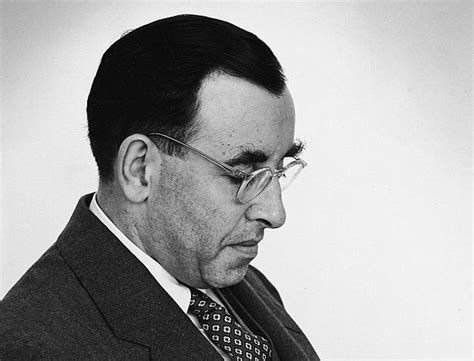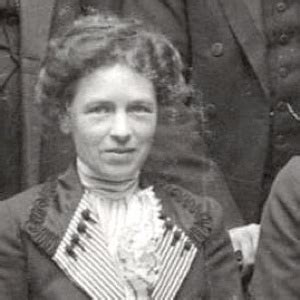A Quote by David Riesman
In preindustrial cultures leisure is scarcely a burden or a "problem" because it is built into the ritual and ground plan of life for which people are conditioned in childhood; often they possess a relatively timeless attitude toward events.
Related Quotes
A large part of our attitude toward things is conditioned by opinions and emotions which we unconsciously absorb as children from our environment. In other words, it is tradition—besides inherited aptitudes and qualities—which makes us what we are. We but rarely reflect how relatively small as compared with the powerful influence of tradition is the influence of our conscious thought upon our conduct and convictions.
Because I could not stop for Death, He kindly stopped for me; The carriage held but just ourselves And Immortality. We slowly drove, he knew no haste, And I had put away My labour, and my leisure too, For his civility. We passed the school where children played, Their lessons scarcely done; We passed the fields of gazing grain, We passed the setting sun. We paused before a house that seemed A swelling of the ground; The roof was scarcely visible, The cornice but a mound. Since then 'tis centuries; but each Feels shorter than the day I first surmised the horses' heads Were toward eternity.
The saying "no self, no problem" probably comes from Zen. In their cultures, where Buddhism is kind of taken for granted, as well as karma, causality, former and future life, and the possibility for becoming enlightened, then it's safe to skirt the danger of nihilism, which would be, I don't exist because Buddha said I have no self, and therefore I have no problem because I don't exist. That would be a bad misunderstanding. But in those cultures, it would not be as easy to have that understanding as it would be here in the west, where we really are nihilistic.
This story is the ultimate example of American’s biggest political problem. We no longer have the attention span to deal with any twenty-first century crisis. We live in an economy that is immensely complex and we are completely at the mercy of the small group of people who understand it – who incidentally often happen to be the same people who built these wildly complex economic systems. We have to trust these people to do the right thing, but we can’t, because, well, they’re scum. Which is kind of a big problem, when you think about it.
The problem right now, which I've been pointing out very bluntly to American officials in Washington, is that the U.S. has no economic presence in Afghanistan. The Afghans can't point and say, "Oh, the Americans built that road. They built that telecommunications facility. They built that electricity powerhouse," because nothing has been built so far.
The way that I feel about my Jewish identity has been really radically changed by events in life. Like, becoming a writer is one. Having children is another. And getting older and watching, you know, my parents and grandparents get older has been another, the seasons of - being witness to the seasons of life and wanting to have some kind of infrastructure to deal with it, to cope with them. Ritual has become more important to me as I've gotten older. It's not always religious ritual, but it often borrows from Judaism.
Living a life fully engaged and full of whimsy and the kind of things that love does is something most people plan to do, but along the way they just kind of forget. Their dreams become one of those "we'll go there next time" deferrals. The sad thing is, for many there is no "next time" because passing on the chance to cross over is an overall attitude toward life rather than a single decision.





































